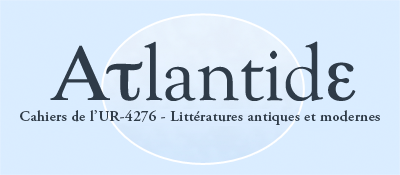“Freud, or Jung, or one of those johnnies, had a case exactly like my uncle’s” : Case Narratives, Pretheorisation, and Formal Hybridity in May Sinclair’s short fiction
[Publication en ligne : 15 juillet 2019]
Résumé : La forme brève est pour la romancière moderniste britannique May Sinclair (1863-1946), un double laboratoire lui permettant de prolonger ses recherches scientifiques et de tester de nouvelles expérimentations esthétiques. Sinclair est en effet une des premières artistes modernistes à s’intéresser aux récits de cas freudiens, qui en exposant l’indissoluble spécificité de situations personnelles, montrent les limites et les silences des discours théoriques généraux et ont ainsi permis la fondation de la nouvelle discipline psychanalytique. En intégrant dans sa fiction brève cette forme inédite, Sinclair fait, elle aussi, œuvre de préthéorisation tout en créant un nouveau contrat de lecture : elle explore avant tout discours et représentation fictionnelle sur le sujet, un questionnement nouveau sur l’attachement dans « The Intercessor » (1911), ou la lâcheté supposée du soldat envoyé au front lors de la Première Guerre mondiale dans/The Romantic/(1920). Nous proposons ainsi de montrer comment la fiction brève sinclairienne se nourrit de l’investigation scientifique sans pour autant apporter d’énoncés stabilisés ni se faire fiction d’idées, mais plutôt en construisant un nouveau type d’hybridité générique, se distinguant des pratiques communément associées aux expérimentations du modernisme.
Mots-clés : May Sinclair, récits de cas, nouvelles, modernisme, théorie de l’attachement.
Abstract : Short fiction enables British novelist May Sinclair (1863-1946) to both prolong her scientific research and test her aesthetics experimentations. Sinclair is one of the first artists forme the modernist era who have made use of Freud’s case narratives, which show the irreductible specificity of personal situations while exposing the limits or the silences of general theoretical discourses. In integrating Freud’s case-based rechearch, which was determining for the creation of psychoanalysis, Sinclair also pretheorises, i.e. in exploring the attachment between a mother and her daughter in « The Intercessor » (1911) and the supposed cowardice of e soldier in The Romantic (1920), she anticipates the seminal research of Freud and Bowlby, while suggesting a new form of reading pact. This paper thus aims to show how Sinclairian short fiction engages in a specific dialogue with contemporary scientific research and builds a new type of formal hybridity that clearly differs from the well-know practices of canonical modernism.
Keywords : May Sinclair, case narratives, short stories, modernism, attachment theory.
Pour citer cet article : Leslie de Bont, « “Freud, or Jung, or one of those johnnies, had a case exactly like my uncle’s” : Case Narratives, Pretheorisation, and Formal Hybridity in May Sinclair’s short fiction », Formes brèves et modernité, Walter Zidarič (dir.), Atlantide, n° 9, 2019, p. 56-68, http://atlantide.univ-nantes.fr
Articles dans le même numéro :
Ce que les nouveaux dispositifs d’abréviation font aux textes patrimoniaux
How long is now. Street Art and Vanity
La confrontation de la performance artistique au monde contemporain : enjeux politiques de l’immédiateté et de la brièveté dans les performances de La Ribot
Le bref ou l’écriture juste dans Ein ganzes Leben (2014) de Robert Seethaler
Geography, memory and identity in Alice Munro’s The View From Castle Rock
La Nouvelle américaine contemporaine face au bref. À propos de David Foster Wallace et William Gass
La modernité des Proverbes Moraux de Sem Tob. Approche diachronique
La contemporanéité de la forme brève dans les récits de Valeria Parrella
Language contacts and greetings : some Croatian examples
Exploring the gestural meta-brevity by means of the italian Gestibolario entries analysis
From the ideal to the real : a pedagogical approach to managing tourist expectations with the ‘myplace4u’ tool
&
Enjeu de la forme, effet de la brièveté : le droit dans ses nouvelles expressions (live-tweet, fiction cinématographique et websérie judiciaire)
Volume intégral - Formes brèves et modernité


